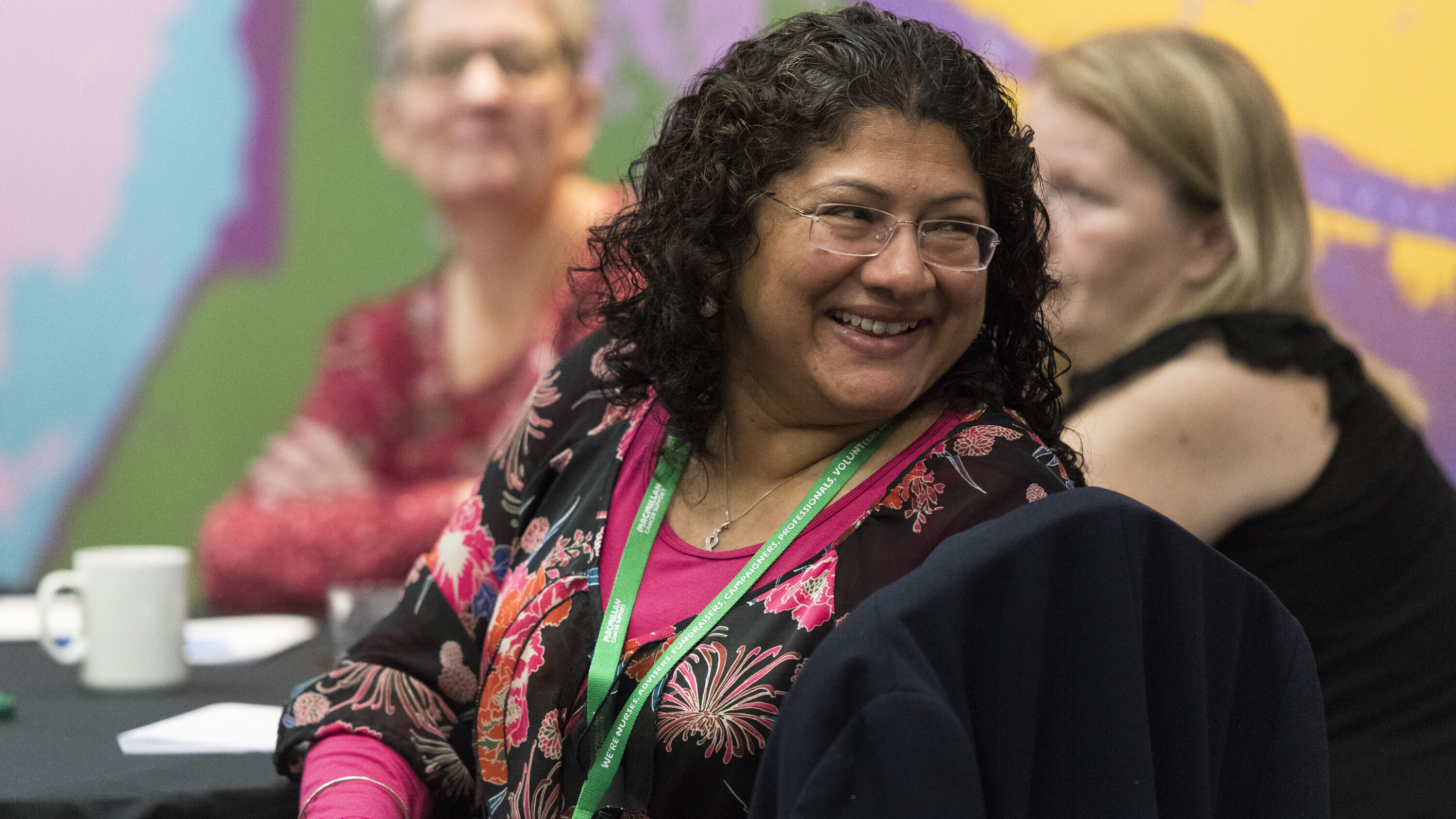More stories like this
-
News and stories 15 Feb 2024Roxane Heaton, Chief Information Officer at Macmillan Cancer Support, discusses Artificial Intelligence (AI), a topic that comes with mixed emotions for many.
-
News and stories 16 Oct 2023Macmillan’s Head of Lived Experience Tahera Bandali explains how we’re building a more meaningful approach to listening to and partnering with people and communities with lived experience of cancer.
-
News and stories 24 Jan 2024In this blog, Macmillan Chief Executive, Gemma Peters, reflects on her first year in the job, shares some thoughts and learnings from these past 12 months, and looks to Macmillan’s future.
How we can help
Macmillan Support Line
The Macmillan Support Line is a free and confidential service for people living with and affected by cancer. If you need to talk, we'll listen.





